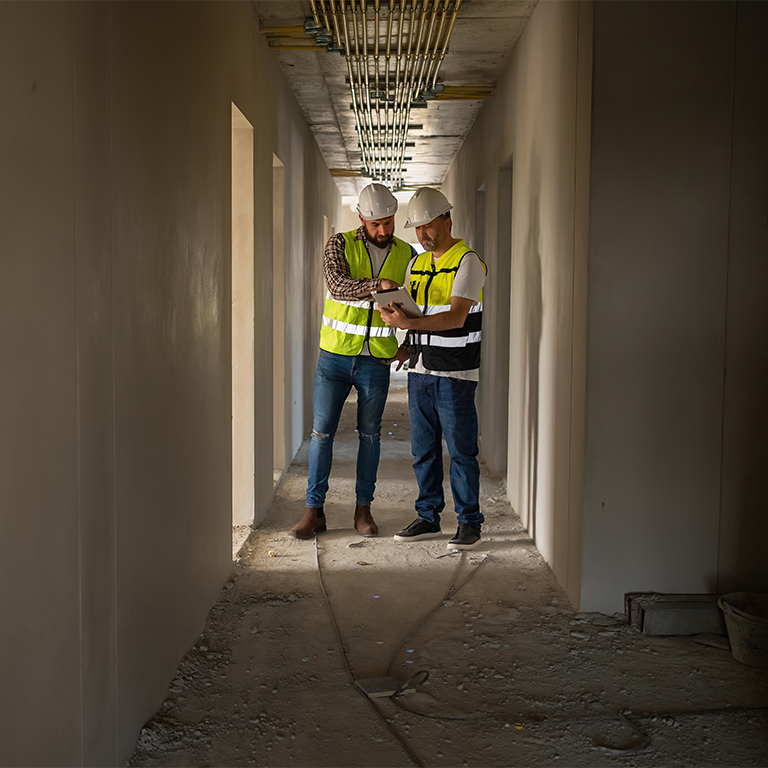No one can predict what’s around the corner, and it can be difficult to judge the impact any incident can have on your business. That is, of course, one of the main reasons why business insurance in general is so important. It’s about putting in place the right protections to help defend your business, finances and reputation when things go wrong.
Some insurance products are, however, better understood than others. Most businesses will be familiar with liability and property insurances for instance, but covers like loss of profit are less well known.1 That doesn’t mean they are less important. In fact, cover for loss of profit could be vital to keeping your business afloat in the aftermath of a serious incident that affects its ability to trade normally for a period of time.
To work out whether you need loss of profit, or loss of income insurance, then, you first need to understand what it is and how it works.
What is loss of profit insurance?
Loss of profit insurance is more commonly known as business interruption (BI) insurance. In simple terms, it is designed to help maintain your business’s trading position if a serious incident – for instance a serious fire or flood affecting your business premises – disrupts its ability to trade as normal.2
Generally, it is a policy that businesses will add to existing insurances like business premises cover. That is because, while property insurance will help with the cost of reinstating premises and other assets after an insured incident, they will not step in to replace lost revenue or profit while that reinstatement process is ongoing, and this can take quite some time.2
That is where business interruption insurance steps in. It aims to maintain a business’s income even if it is unable to trade following an insured incident. Additionally, it helps a business return to the same performance it enjoyed prior to the incident. In order to do that, the right BI insurance can cover:
1. Loss of gross revenue and profit
Helping with loss of income while you’re unable to trade. It can also pay ongoing rent, employee salaries and other overheads.
2. Increased cost of working
BI insurance can help with additional expenses you could be facing. Such as the need to rent alternative premises, or hire temporary staff and equipment to keep your business running.
3. Recovery periods
One key aspect of business interruption insurance is the length of cover it provides. It’s important to think carefully about how long it might take to return to the pre-incident level of trade. You should ensure that your BI cover will be there to support you throughout this period, which could last for years rather than months.1
What does loss of profit, or BI insurance cover?
Clearly, the cover you take out will need to reflect the risks you face as a business. However, in general terms, BI insurance will apply to losses and costs associated with insured events. such as damage caused to your premises by:
- fire;
- storm;
- or flooding and the breakdown of essential equipment.
Some policies will also cover business interruption that occurs when people are not able to get into your premises, and damage occurring at supplier or customer premises. While some specialist policies are available to insure computers against viruses, hackers and other cyber risks.1
You may be aware that BI insurance has been in the news over the last year or so, because there was some doubt as to whether BI policies that businesses had already taken out would be triggered when they were affected by COVID-19. In January 2021, The Supreme Court handed down a judgment on 21 test cases. Essentially confirming that some BI policies should provide cover for a range of COVID-19 related claims.
The judgement brings much needed clarity around BI cover and COVID-19. Although it should be noted that not every BI cover will respond to COVID-19 losses, even in light of the judgement. So careful review of policy wordings and conditions is still very much advised.3
Do I need loss of profit insurance?
First of all, unlike employers liability insurance, there is no legal requirement for businesses to have BI insurance cover in place. The choice as to whether to take out BI comes down to the risks a business is faced with and the potential impact if something were to go badly wrong.
By way of example, let’s say a high street florist, sharing a property alongside other businesses with residential flats above, suffered a devastating fire leaving the building in need of significant repairs. To make matters worse, an extensive rebuild is complicated because the building is within a tightly controlled conservation area, meaning a reconstruction period of 24 months.
The question is, how would that florist survive if it was unable to trade for two years? Or how would it cover the costs associated with moving to temporary premises? If the business had effective BI cover in place, for a period of 24 months, it would get help with everything from lost revenue and profit to the costs of finding temporary premises. All of which puts it in a much better position to weather the storm and return to trading as normal once repairs have been completed.1
So, when considering whether you need loss of profit, or business interruption insurance, you need to consider the worst-case scenario. Think about what would happen if, for instance, a fire destroyed your premises. Could you carry on trading, would your income be significantly affected, what costs might you incur that wouldn’t be covered by your property insurance, and how long might it take you to recover?
This kind of incident might seriously affect revenue or profit. Or it could even threaten the survival of the business. In this case it may be worth taking a closer look at business interruption insurance.
Buying business interruption insurance
It’s important to remember that taking out the right BI cover may not be straightforward. It’s essential to think about the risks you face and to be realistic about how long it might take the business to recover. Otherwise, you could end up with BI insurance that only partially protects your business. For instance, because the amount of cover is too low, or because the length of cover is too short.2
With that in mind, it is always beneficial to seek expert help from a broker. They can help you understand your risks and work with you to secure the protection you need to recover from a serious incident that affects your business.
Help is at hand
You can find out more about the BI insurance available from Marsh Commercial. Or find a local expert for help and advice. Meanwhile, you can read about how we help with business continuity planning here.
Sources
1. marshcommercial.co.uk/business-interruption-insurance
2. entrepreneurhandbook.co.uk/business-interruption-insurance
3. mishcon.com/covid-19-business-interruption-claims-the-clock-is-ticking
Real-world insight that we don't share anywhere else
Get access to exclusive help, advice and support, delivered straight to your inbox.


